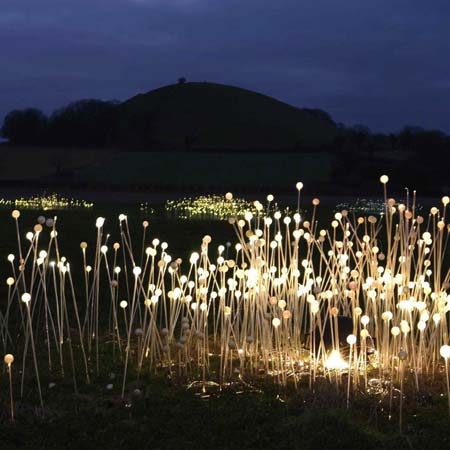
Field of Light by Bruce Munro
Lighting designer Bruce Munro will present his Field of Light installation at the Eden Project in Cornwall, England, this winter.
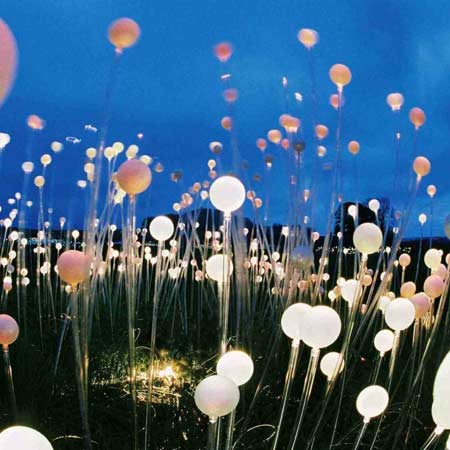
The installation, consisting of 6,000 acrylic tubes containing optical fibres, is inspired by the way the desert flowers after a rainstorm.
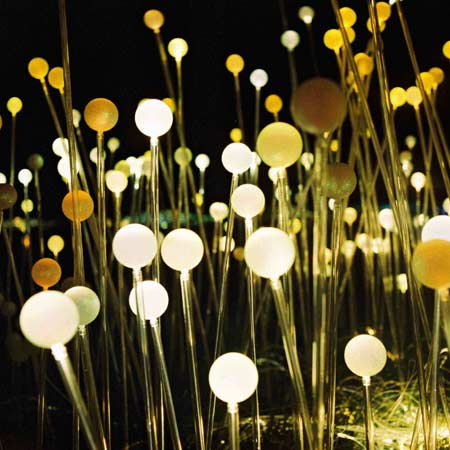
The following is by Bruce Munro:
--
Press Release 18th September 2008
Bruce Munro’s Field of Light at the Eden Project
Visitors to the Eden Project in Cornwall this winter will have a chance to see one of Bruce Munro’s most iconic illuminated sculptures.
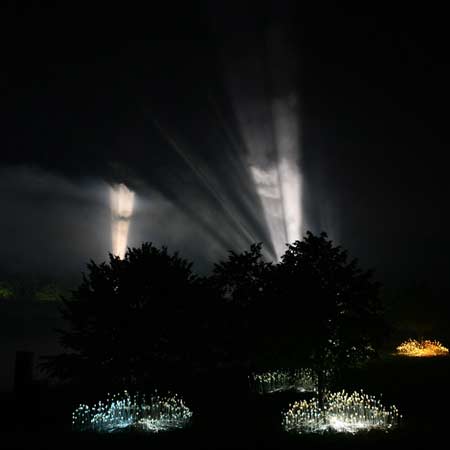
Munro’s ‘Field of Light’ will be installed on the grass roof of the visitors centre, between the famous Rainforest and Mediterranean Biomes from November 1st through to Spring 2009. The sculpture first came to widespread public attention when a scaled-down version was exhibited in the Pirelli Garden at the V&A in 2004.
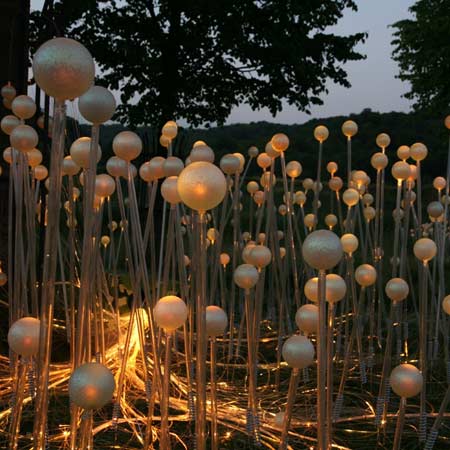
“I’m really delighted to be working with the Eden Project” said Munro “ its a place with a unique vision, and I’m happy that my sculpture will be shown at a place which celebrates nature.”
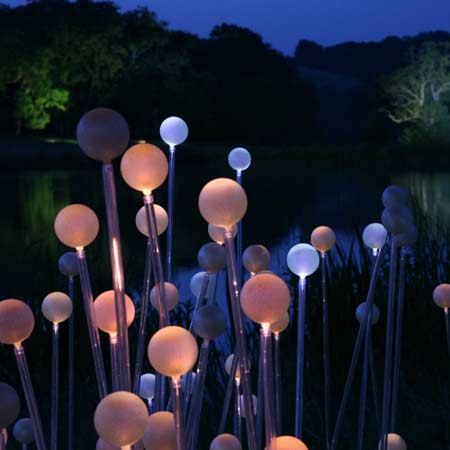
Munro was inspired to make this piece during a trip through the Australian red desert 15 years ago. Driving along the Stewart Highway he would stop every night at roadside campsites, which are often in stark contrast to the barren desert that surrounds them: sprinkler-fed oases of green, each one displaying a larger than life sculpture of surreal design and proportions - perhaps a giant banana, pineapple or Merino sheep.
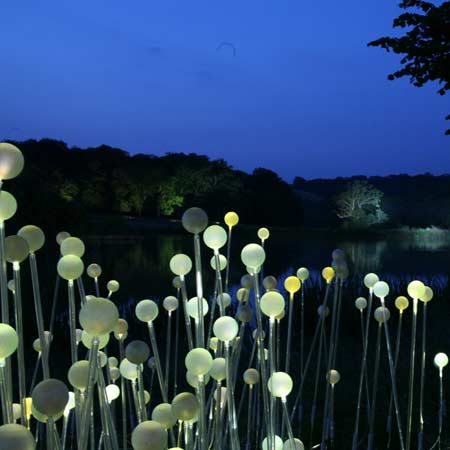
Munro was transfixed by the way the red desert was barren until it rained and then, as if from nowhere, dormant seeds would burst into bloom. He made a series of sketches in the notebook carried in his pocket since art college days, and the idea refused to dislodge from his mind.
Field of Light, like a giant surreal camp-side banana, is an alien installation in the midst of nature. And like dry desert seeds lying in wait for the rain, the sculpture’s fibre optic stems lie dormant until darkness falls, and then under a blazing blanket of stars they flower with gentle rhythms of light. ‘Field of Light’ is about the desert as much as the roadside campsites - and like much of Munro’s work is characterised by an almost mystical passion for nature teamed with a robust sense of humour.
Light has always played a major part in Munro’s life and work, “for me, it is a natural medium to use” he says. Over the years, the design format and technology of Field of Light have evolved and it has been shown in many places. It is made of acrylic tubes, through which fibre optic cables run, each topped by an acrylic ball. There is an external projector, and so the stems themselves hold no electric power at all. At the Eden Project, the installation will have 6,000 tubes and cover an area of 60 x 20 meters, using 24, 000 meters of fibre.
The Eden Project, co-founded by its chief executive Tim Smit in the mid 1990s, welcomes over a million visitors a year, using exhibits, events, workshops and educational programmes to remind people of what nature gives to us, and to help people learn how to look after it in a time of radical change.
The Eden Project also mounts regular exhibitions by internationally renowned artists. Field of Light will be installed at the end of their autumn season (which includes a concert by Oasis). Best viewed in hours of darkness, Field of Light will be in place through the Winter Season when Eden transforms into a winter wonderland- with a Christmas market and ice-skating, curling, roasted chestnuts, mulled wine, hot chocolate and choirs.
In the Pipeline from Bruce Munro
A prototype of Bruce Munro’s newest installation, a massive illuminated maze synchronised with choral music called Water Towers, will be exhibited at Rook Lane Arts in Frome in March 2009. Plans are afoot for a full scale Water Tower to be shown at the Sustainable Institute in South Africa. The towers are made from recycled materials lit by innovative hydrogen-cell technology, which power seven-watt LEDs and fibre optics. Munro is building this piece with the help of local communities and schools and hopes it will bring a smile to visitor’s faces.